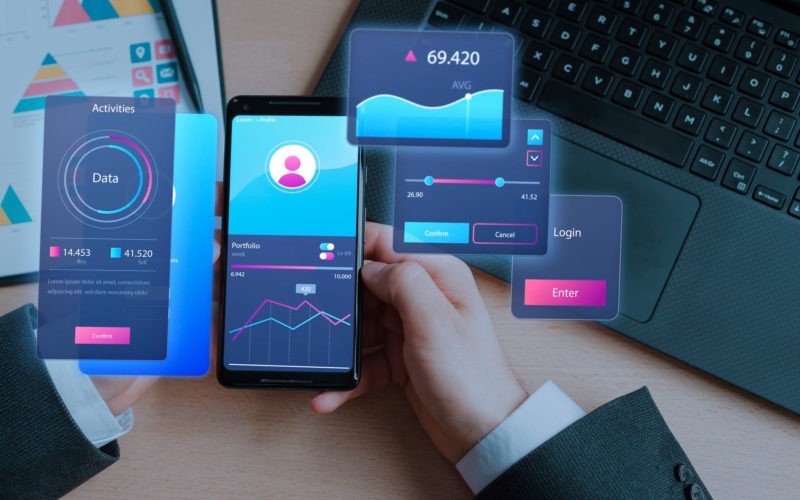Marketing is the lifeline of any small business. Without it, even the best products can fade into obscurity. Successful marketing brings your business to the forefront, capturing attention and driving growth. This article delves into essential marketing strategies that can transform your small business.
In this article, we’ll explore powerful marketing tips that can help your small business stand out, reach the right audience, and grow sustainably.
Build a Strong Online Presence
Maintaining a strong online presence is essential in the modern digital world.
- Create an Attractive Website: Your website acts as the face of your business online. Whether it’s a full-fledged e-commerce site or a single landing page, it needs to look professional and be user-friendly. Use high-quality images, ensure mobile compatibility, and regularly update the content to keep it fresh.
- Leverage Social Media: Social media platforms are excellent for building brand awareness. Begin with one platform where your target audience is most active. Creating engaging content, sharing valuable information, and interacting with followers can significantly improve your visibility.
Example:
A small handcrafted goods shop could start by creating a vibrant Instagram page showcasing its unique products. By using targeted hashtags and engaging with followers’ comments, the shop can quickly build a loyal customer base.
Utilize Content Marketing
Content marketing is a cost-effective way to attract and engage your target audience by providing valuable, relevant, and consistent content. This strategy not only helps in building trust and credibility but also positions your small business as an industry leader.
- Create a Blog: Start a blog on your website where you can share expert insights, industry news, how-to guides, and stories related to your products or services. Maintaining a regularly updated blog can help you rank higher in search results, which will make it easier for prospective clients to find you.
- Develop Engaging Videos: Videos are a highly engaging form of content. Create short, informative videos that showcase your products, explain complex concepts, or share customer testimonials. Platforms like YouTube and Instagram are excellent for video marketing.
- Host Webinars: Hosting webinars on topics relevant to your industry can establish your authority and provide value to your audience. Webinars also offer an opportunity to interact with potential customers in real time, answering their questions and addressing their concerns.
Tap into Email Marketing
Email marketing remains a powerful tool for connecting with your audience directly.
- Automate Email Campaigns: Use platforms like Mailchimp to automate your email campaigns. This can save time and ensure that your audience receives timely and relevant information.
- Build and Segment Your Email List: Collect email addresses through opt-ins on your website, in-store sign-up sheets, or through promotions. Segment your email list based on customer preferences and behavior to send more personalized and effective messages.
Example:
A small bakery could offer a monthly newsletter featuring new recipes, baking tips, and special offers. This not only keeps the bakery top-of-mind but also provides value to subscribers, increasing the likelihood of repeat business.
Invest in the Right Advertising
Choosing the right advertising channels can make a significant difference.
- Test Different Platforms: Experiment with various ad platforms like Facebook, Pinterest, and Google Ads to see which ones yield the best results. For local businesses, integrating custom logo made signs into your ad visuals can reinforce brand identity and improve recall. Track the performance and adjust your strategy accordingly.
- Budget Wisely: Allocate a specific portion of your budget to advertising. Start small and scale up the investment as you begin to see positive returns.
Example:
A local gym might find that Facebook Ads targeting local users within a specific radius yield better results than broader Google Ads, allowing for more precise outreach and better engagement.
Forge Strategic Partnerships
Local partnerships can boost your business in unexpected ways.
- Collaborate with Local Influencers: Partner with local influencers who have a strong connection with your target audience. Micro-influencers (those with 10k-100k followers) often provide more authentic and engaging promotions.
- Participate in Community Events: Visibility in local events, trade shows, or markets can bring you face-to-face with potential customers and create a meaningful community presence.
Example:
A coffee shop could team up with a local book club, offering a cozy space for meetings and special discounts. This provides value to the club members while increasing foot traffic for the coffee shop.
Offer Exceptional Customer Service
Excellent customer service can set you apart from larger competitors.
- Personalize the Customer Experience: Small businesses have the agility to personalize interactions. Remembering customer names and preferences can create a strong bond.
- Act on Customer Feedback: Regularly seek and act on customer feedback. Use surveys or online polls to gather insights and make necessary improvements.
Example:
A boutique clothing store might maintain a record of customer preferences and notify them when new arrivals match their style. This personalized touch can foster customer loyalty and repeat business.
Run Attractive Promotions
Promotions can generate buzz and increase sales.
- Design Effective Promotions: Create promotions that provide genuine value to customers, such as discounts, buy-one-get-one-free offers, or giveaways.
- Utilize Holidays and Special Occasions: Align promotions with holidays, events, or seasons to make them more relevant and enticing.
Example:
A small flower shop could boost sales by offering a special Valentine’s Day promotion, including a discount on flower arrangements and free delivery within a certain radius.
Leverage Data and Analytics
Understanding your audience and measuring the performance of your marketing efforts is crucial for continuous improvement and growth. Leveraging data and analytics allows you to make informed decisions and optimize your strategies.
- Track Key Metrics: Use tools like Google Analytics to monitor your website traffic, user behavior, and conversion rates. Understanding these metrics can help you identify what’s working and where there’s room for improvement.
- Analyze Social Media Performance: Each social media platform provides insights into engagement, reach, and demographics. Use these insights to tailor your content and posting schedule to better resonate with your audience.
- Conduct A/B testing: This technique compares two versions of an email, advertisement, or website to see which performs better. This aids in making the most impactful marketing efforts possible.
Example:
A small e-commerce store could use Google Analytics to track which products are viewed the most and have the highest conversion rates. Based on this data, they can create targeted marketing campaigns for their best-selling items. Additionally, by analyzing social media insights, they can determine the best times to post and the type of content that generates the most engagement.
Conclusion
Standing out as a small business in a crowded marketplace requires creativity, strategic planning, and a strong focus on customer relationships.
By building a solid online presence, leveraging email marketing, investing in the right advertising, forging strategic partnerships, and offering exceptional customer service, your small business can not only compete but thrive. Remember, your agility and ability to personalize the customer experience give you a unique edge. Embrace these tips, and watch your business grow and succeed.












